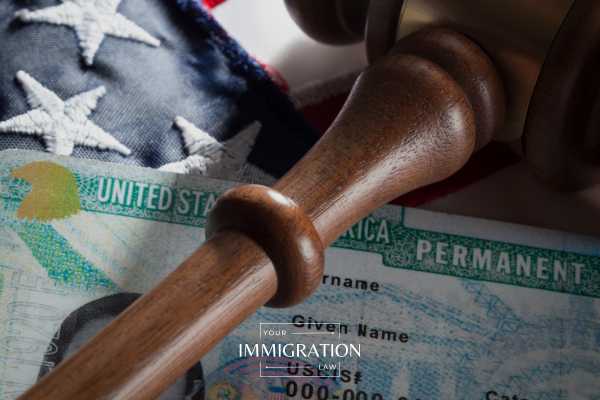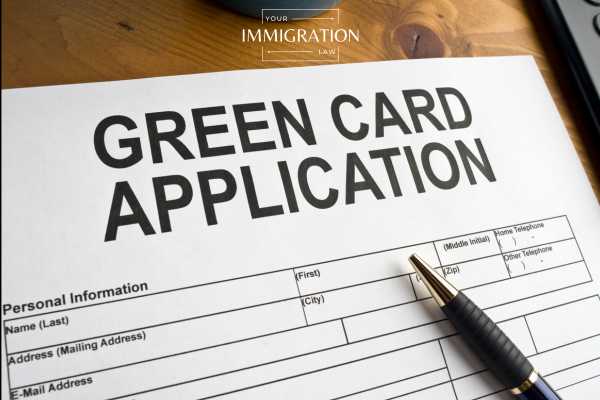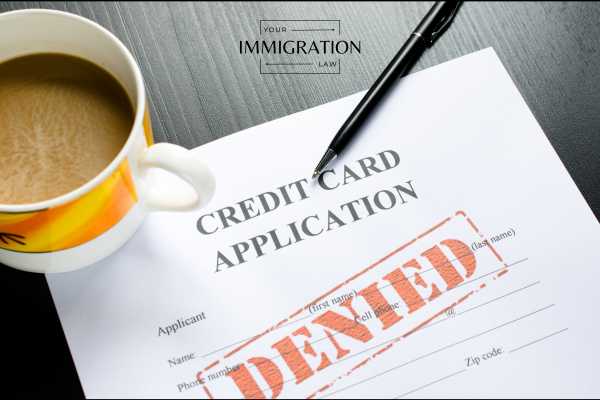Are you seeking to navigate the complex process of obtaining a green card? A skilled green card lawyer can guide you through every step, from initial application to final approval. With our help, you can understand the requirements, prepare your documents, and address any legal issues that may arise.
Don't let the immigration process overwhelm you. Contact a knowledgeable green card lawyer today to ensure your application is handled correctly and efficiently. Reach out now at 313-631-8080 to schedule a free consultation to discuss your green card eligibility and take the first step toward securing your future in the U.S.
Types of Green Card
When it comes to living in the United States permanently, getting a green card is an important step. But did you know there are different types of green cards depending on how you qualify? Some people get a green card through their family, like if their parents or siblings are already U.S. citizens.
Others might qualify through a job or even by seeking asylum if they’re escaping danger in their home country. Understanding the different types of green cards can help you figure out the best way to reach your goal of living in the U.S.
Family-Based Green Cards
When it comes to getting a green card through family, U.S. citizens and lawful permanent residents can help their close relatives move to the United States permanently. This process is called "sponsorship." For example, a U.S. citizen can sponsor their spouse, children, parents, or even siblings for a green card. Lawful permanent residents, who already have a green card, can sponsor their spouse and unmarried children.
There are two main groups when it comes to family-based green cards: immediate relatives and preference categories. Immediate relatives include spouses, parents, and unmarried children under 21 of U.S. citizens, and they have an easier time because there are always visas available for them.

On the other hand, the preference categories include other family members like siblings, and they might have to wait longer because only a certain number of visas are available each year. Understanding these differences helps you see how family-based immigration works and who can benefit from them.
Employment-Based Green Cards
When it comes to getting a permanent residency through work, there are different categories based on the type of job and your skills. Employment-based green cards are for people who have special talents or are highly skilled in their profession.
For example, the EB-1 category is for priority workers, like people with extraordinary abilities in arts, sciences, or business. The EB-2 category is for professionals with advanced degrees, like doctors or engineers. The EB-3 category is for skilled workers, like chefs or electricians, and sometimes even for professionals with a bachelor’s degree.
To get an employment-based green card, your employer usually needs to sponsor you, which means they agree to hire you and help you with the application process. This often involves something called the PERM labor certification, where the employer proves that there aren’t enough U.S. workers available for the job. Understanding these different categories and the process can help you see how people can come to the U.S. to work and live permanently.
Diversity Visa Lottery
The Diversity Visa (DV) Lottery, also known as the Green Card Lottery, is a really cool way for people from countries with low immigration rates to the U.S. to have a chance at getting a green card. Each year, the U.S. government holds this lottery and randomly selects winners from millions of applicants around the world.
To enter the DV Lottery, you need to be from an eligible country and meet some basic requirements, like having at least a high school education or two years of work experience in a job that needs special training. If you’re selected, you can apply for a green card, which allows you to live and work in the U.S. permanently. It’s a rare and exciting opportunity, and the best part is that it’s completely free to enter the lottery!
Asylum and Refugee Green Cards
When someone comes to the U.S. because they’re escaping danger or persecution in their home country, they can apply for asylum or refugee status to stay safe. If they’re granted asylum or refugee status, they can live in the U.S. and, after one year of residency, apply for a green card to stay permanently. To be eligible, they must show they've lived in the U.S. for at least one year since getting asylum or refugee status. They must also still meet the original conditions for protection.
The application process requires some important documents, like proof of their refugee or asylum status, a medical examination, and evidence that they’ve lived in the U.S. continuously for that year. Getting a green card through asylum or refugee status is a big step toward making a new, safer life in the U.S.
Special Immigrant Green Cards
Did you know that some people can get a green card through special immigrant categories? These are unique situations where people who’ve done specific types of work or have certain backgrounds can apply for a green card. For example, religious workers, like ministers or missionaries, who have worked in the U.S. for a religious organization can qualify for a green card.
Another example is international employees of the U.S. government, like translators or foreign service workers, who’ve helped the U.S. abroad and want to live here permanently. There are other special immigrant categories, too. They recognize the unique contributions of these individuals. They allow them to become permanent U.S. residents.
The Green Card Application Process
The green card application process involves figuring out which category you qualify for, like through family, work, or special situations. Then, you or your sponsor will fill out forms and send them to the U.S. government for review. If approved, you’ll become a permanent resident and can officially call the U.S. your home! Take a look at the steps it takes to obtain a green card in greater detail.
Eligibility Assessment
Before you start the green card application, it's vital to choose the right path. This begins with assessing your eligibility. You might qualify based on family ties or a job. A parent or sibling who is a U.S. citizen can help. Or, an employer might want to sponsor you.

There are also paths for people with humanitarian status, like refugees or those seeking asylum. A lawyer can be very helpful. They can assess your situation, explain your options, and find the best strategy to improve your chances of getting permanent resident status.
Filing the Petition
Filing the petition is one of the first big steps in the green card application process, and it’s important to get it right. Depending on how you’re applying, you’ll need to fill out a specific form, like Form I-130 if a family member is sponsoring you, or Form I-140 if you’re applying through a job.
Along with the form, include documents that prove: your relationship to your sponsor, a job offer, and financial support to show you won't need government help. Taking it step by step and making sure all the paperwork is in order will help keep your application on track.
Adjustment of Status vs. Consular Processing
When applying for a green card, there are two main ways to go about it. If you’re already in the U.S., you can apply to adjust your status, which means you stay here while your application is processed. On the other hand, if you’re living abroad, you would go through consular processing, which means you apply for your green card through a U.S. embassy or consulate in your home country.
Both options have their pros and cons—adjusting status lets you stay in the U.S., but it can take longer, while consular processing might be quicker, but you’ll need to wait outside the U.S. to get approved. Deciding which path to take depends on where you are currently living and your specific situation.
Interview Preparation
Preparing for your green card interview is an important part of the process, and it’s not as scary as it might seem! During the interview, an immigration officer will ask you questions about your application to make sure everything is accurate and that you qualify for a green card.
To get ready, review your application carefully and practice answering questions about your background, family, or job—whatever is relevant to your case. It’s also a good idea to bring any updated documents just in case. Having a lawyer with you during the interview can be really helpful too, especially if any tricky questions come up. They can make sure everything goes smoothly and help address any concerns that might arise.
Common Challenges You May Face in the Green Card Process
The green card process can have some challenges, like gathering all the right documents, waiting for approvals, or handling unexpected delays. But don't worry—these obstacles can be overcome with patience and the right help.
Whether it's staying organized, getting advice from green card attorneys, or just keeping a positive attitude, you can work through these challenges and move closer to becoming a permanent resident.
Addressing Visa Bulletin Backlogs
Visa bulletin backlogs can be a tricky challenge in the green card process. Basically, there are only so many visas available each year for family-based and employment-based categories, so when a lot of people apply, there’s a waiting list. This means that even if you’re approved, you might have to wait a long time before your visa is actually available.
The visa bulletin is a chart that shows how long the wait might be for different categories and countries. If you're stuck in a backlog, there are legal strategies to help. Keep your documents up to date, consider other visa options, or work with a lawyer to explore ways to speed up the process. It’s all about staying informed and being patient as you wait for your chance to get a green card.
Waivers of Inadmissibility
Sometimes, people face challenges in the green card process because of issues that make them "inadmissible," which means they aren't allowed to get a green card right away. Common reasons include having a criminal history or spending time in the U.S. without permission. But don't worry—there’s still hope!
An experienced immigration lawyer can help you apply for a waiver of inadmissibility. It's a request for special permission to proceed with your green card application despite these immigration issues. With the right guidance and paperwork, you might overcome these challenges. You could then continue your journey to permanent residency.
Dealing with Denials and Appeals
Getting a green card application denied can be really disappointing, but it’s not the end of the road. Common reasons for denials include not having enough evidence to support your application or not meeting all the eligibility requirements. If this happens, you still have options.

An experienced immigration attorney can help you appeal the decision, which means asking the authorities to take another look at your case. They can also guide you in reapplying, making sure you fix any issues that caused the denial. With the right support, you can address the problems and keep moving forward in your green card journey.
How Long Does It Take to Get a Green Card?
Getting a green card can take some time, and the wait depends on a few different factors. For some people, it might take just a few months, while for others, it can take several years. It all depends on things like which category you’re applying under—like family-based or employment-based—and how many people are ahead of you in line.
Sometimes there are backlogs, which means there are more green card applicants than available visas, causing delays. It’s important to be patient and stay on top of your application while you wait. Remember, getting a green card is a big step, and the wait will be worth it when you finally get to call the U.S. your permanent home!
How Much Does It Cost to Get a Green Card?
Getting a green card does come with some costs, and it’s important to know what to expect. The total price can vary depending on your situation, but you’ll need to pay for things like application fees, which can be a few hundred dollars, and sometimes for medical exams or background checks.
If you’re working with an immigration law firm to help with your application, there will be additional legal fees, too. While it might seem like a lot, remember that these costs are an investment in your future, helping you take a big step toward becoming a permanent resident in the U.S.
Frequently Asked Questions
- How long does it take to get a green card through family sponsorship? It can take anywhere from a few months to several years, depending on your relationship to the sponsor and visa availability.
- Can I work while my green card application is pending? Yes, you can apply for a work permit (Employment Authorization Document) while your green card application is being processed.
- What happens if my green card application is denied? If your green card application is denied, you can appeal the decision or reapply after addressing the issues that caused the denial.
- How do I renew or replace a lost green card? You can renew or replace a lost green card by filing Form I-90, Application to Replace Permanent Resident Card, with U.S. Citizenship and Immigration Services (USCIS).
Get Help With the Green Card Process From your Immigration Law
Navigating the green card process can feel overwhelming, but having the right information and support can make all the difference. Our immigration attorneys can help you, no matter how you apply. They will guide you, ensuring you know your options and avoid pitfalls. Remember, getting a green card is a big step toward making the U.S. your permanent home, and with the right help, you can successfully navigate the journey ahead.